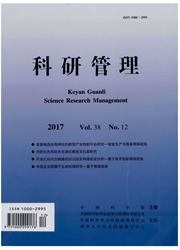

 中文摘要:
中文摘要:
本文利用研究与发展经费投入、外商直接投资、人力资本和国外技术外溢等变量来衡量技术进步,然后对技术进步和能源效率进行了协整分析和格兰杰因果关系分析,并建立广义差分回归模型。实证分析的结果表明四个变量与能源效率之间存在一定的长期均衡关系且研究与发展经费投入和外商直接投资与能源效率构成了单向因果关系,因此增加科技投入、促进FD I吸收和利用,对中国能源效率的提高具有长期效应。
 英文摘要:
英文摘要:
Many variables are applied to measure the technological progress; among them are research and development input, FDI, human capital, and technology spillover of foreign countries. Then the coordinating analysis and Granger causality analysis are made on the technical progress and energy efficiency, and futhermore a generalized difference regression model is established. The results from empirical analysis show that long- run equilibrium relationship in some degree exists between these four variables and energy efficiency. Moreover, the R&D input, FDI, and energy efficiency form a relation of one -way causation. Therefore, it will have a long - term effect on the improvement for China' s energy efficiency by means of increasing investment in science and technology, speeding up the absorption and utilization of FDI.
 同期刊论文项目
同期刊论文项目
 同项目期刊论文
同项目期刊论文
 期刊信息
期刊信息
